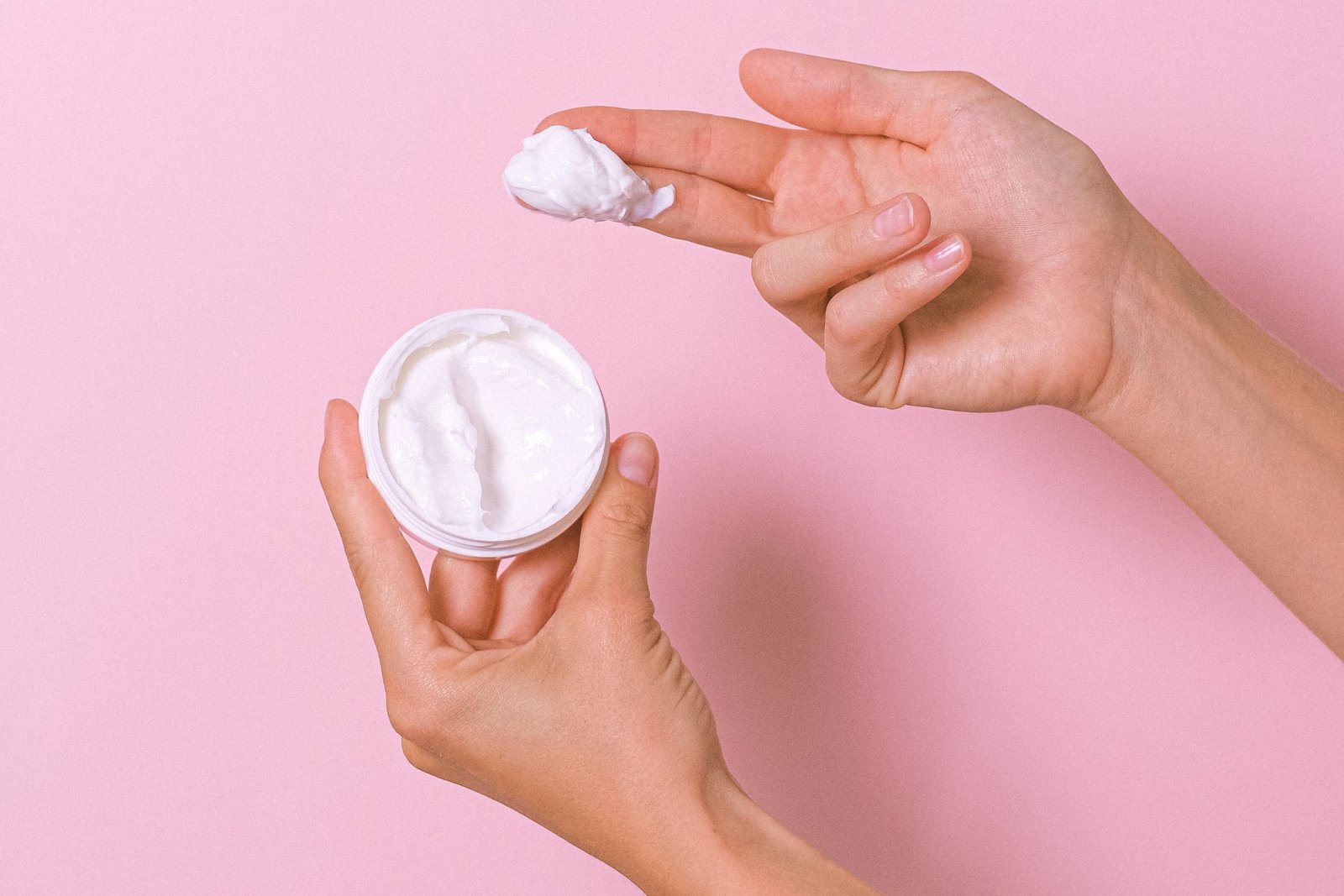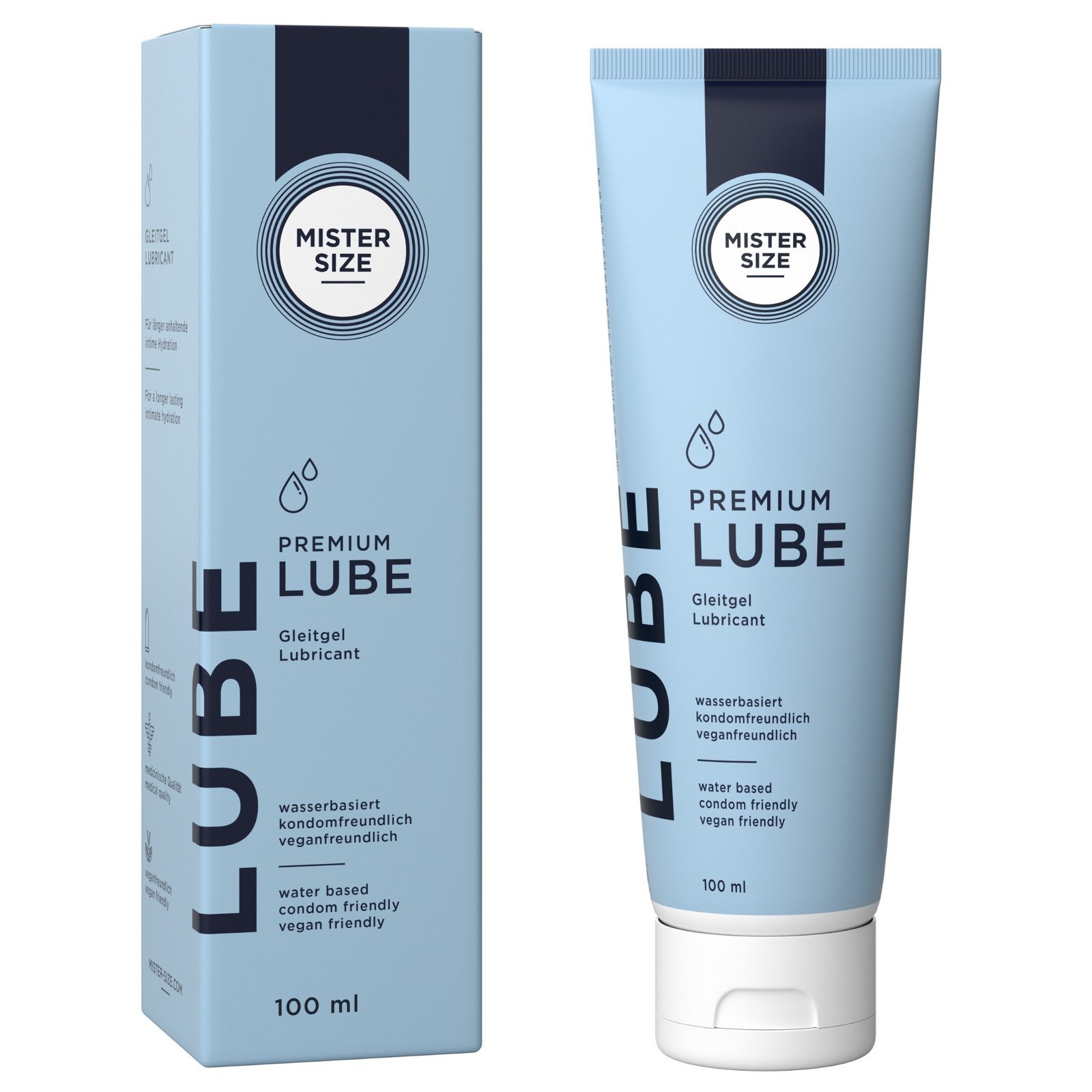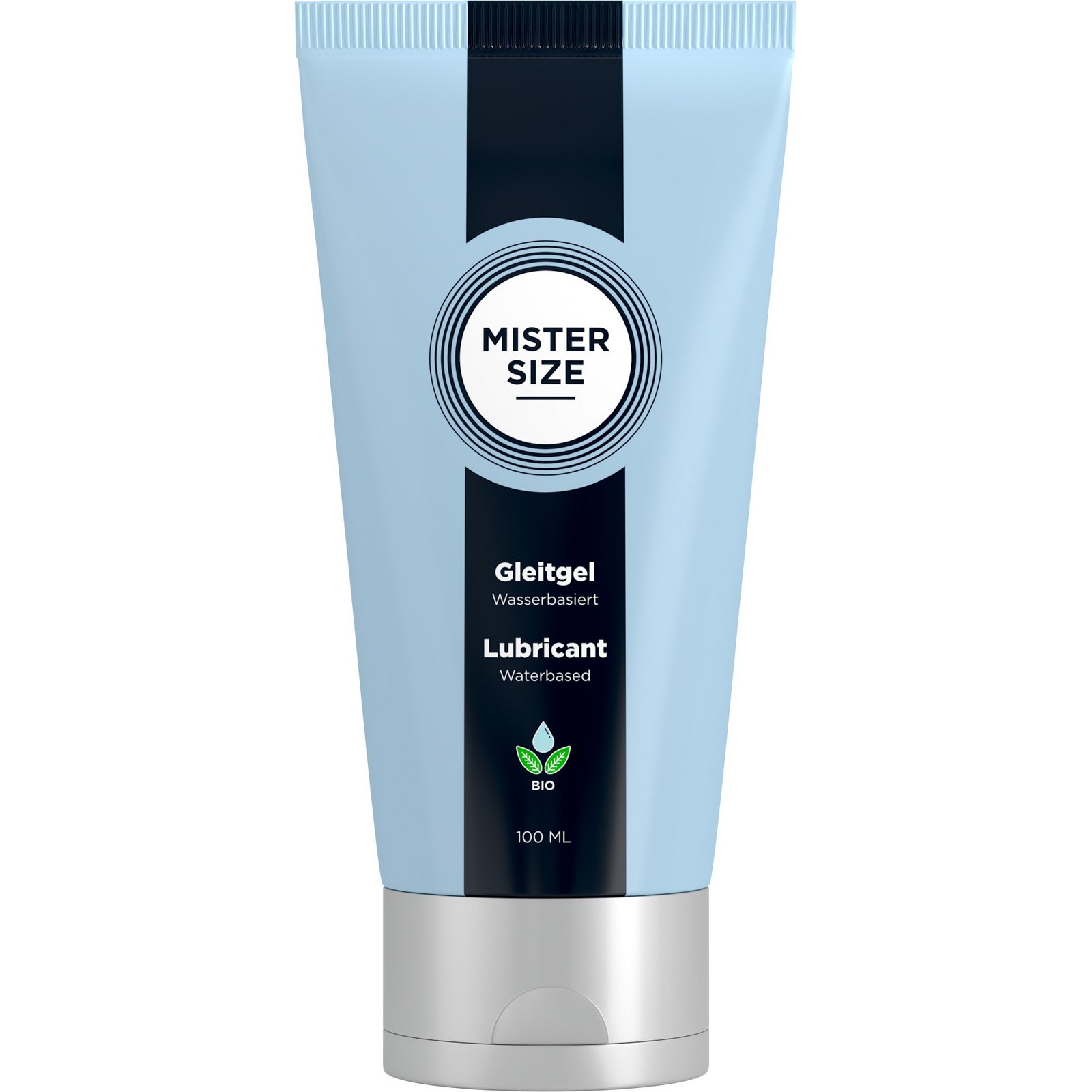
Alternatives to personal lubricant - What is the best substitute?
A tablespoon of olive oil can be more harmful to a condom than 18 liters of air pumped into it. Find out why this is the case and which popular personal lubricant alternatives should stay in the kitchen.
Personal lubricant - what if there isn't any at the right moment?
Whether silicone-based, water-based, warming, tingling, particularly long-lasting lubricant or organic - there is now a wide range of personal lubricants available. Whether for medical reasons or for an extra dose of pleasure, there is the right one for every need.
But what if you realize too late that the tried-and-tested tube is already empty? We've taken a closer look at popular home remedies and alternatives to find the best replacement.
It depends on the type of sexual intercourse
Oral, vaginal, anal and with or without a condom: these factors influence whether a particular product can be used as a substitute or not.
Foods such as honey are a popular lubricant alternative for oral satisfaction. Simply spread it on the desired body parts and the sweet taste literally invites you to indulge. The golden treat turns kisses and caresses into a whole new love adventure.
Honey can generally be applied to the external genital area of both men and women without any problems. An Egyptian study even found that a mixture of yogurt and honey can be effective against vaginal thrush.
However, an intolerance cannot be ruled out. If you want to be on the safe side, it is advisable to use a flavored personal lubricant that has been specially developed for the intimate area.
If there is also penetrative vaginal intercourse, it is generally better to keep food in the kitchen. This is because mucous membranes often react very sensitively to foreign substances.
The sensitive vaginal flora
One of the reasons for this is that the vaginal mucous membranes react strongly and unpredictably to changes in the pH value. The pH value is a measure that describes the relative acidity or alkalinity of a solution.
The vagina is a sensitive environment that depends on a natural balance of microorganisms and fluids. A healthy vaginal environment normally has a pH value of 3.8 to 4.5, which is slightly acidic.
If you use home remedies such as moisturizers or various oils that are not adapted to the female vaginal flora, these can change the pH value and lead to fungi, irritation and infections. Ingredients such as perfume can also irritate the intimate area and cause severe burning. This also applies in particular to massage oils that are not explicitly labeled as a 2-in-1 product.
Coconut oil as a lubricant alternative
Pure coconut oil is an exception here: not only is it well tolerated, it can also be used for intimate care. Like honey, coconut oil acts as a natural remedy against vaginal fungus.
Coconut oil can also be used to care for the anal area. It is therefore a practical lubricant substitute for vaginal or anal intercourse. However, it should be borne in mind that the lubricity wears off more quickly than with a real (anal) lubricant. In addition, coconut oil should never be used with latex condoms, as condoms become porous due to fats and oils.
The same applies to milking fat: To this day, some gynecologists recommend using a sparing amount of milking fat in the intimate area as a care product. It could therefore be considered as a lubricant substitute. However, milking fat also has a very high fat content, which can be very harmful to latex condoms.
Are there other lubricant alternatives for anal intercourse?
Sufficient lubricant is a must for anal intercourse, as the mucous membranes in the anus cannot produce anywhere near as much moisture as those in the vagina. Dry anal intercourse can lead to severe pain and irritation for everyone involved. Unlike in certain adult films, a little spit won't get you very far here, as it dries out quickly and provides hardly any lubrication.
Greasy substances such as salad oil and Vaseline also do more harm than good here. The anal mucous membranes are just as sensitive as the vaginal mucous membranes and are easily prone to infections.
There are numerous lubricants that have been specially developed for anal intercourse. These usually have a longer and more intense glide than standard personal lubricants. It is therefore advisable to postpone the anal adventure and get a suitable personal lubricant beforehand.
Condoms - Why can't I use home remedies such as coconut oil, milking fat or lotion?
As a medical device, a condom must be able to contain a full 18 liters of air according to the ISO 4074 standard without bursting. A little cream or oil won't do any damage, will it?
Unfortunately wrong! Fatty or oily substances such as coconut oil, olive oil, Vaseline and moisturizers actually cause a lot of damage. To understand why these substances are so dangerous for condoms, you first need to understand how a condom is made.
Conventional condoms, which are not latex-free, are made from natural rubber latex. This is first vulcanized. This means that some sulphur is added to the rubber under pressure and heat. This results in the formation of sulphur bridges, i.e. many small compounds within the material. The chemical reaction ensures that the material becomes soft and elastic.
Unvulcanized rubber would have a stubborn consistency, would break in the cold and melt in the heat. As a material for car tires, cleaning gloves or even condoms, it is therefore completely unthinkable.
However, mineral oils and fats can attack these chemical sulphur bridges within the rubber and impair the structure of the material. This is also due to the fact that natural rubber swells strongly in mineral oils and fats. If these bridges break, the rubber and therefore the condom becomes porous and tiny damage and microcracks occur.
Incidentally, these sulphur bridges replace themselves over time to form oxygen bridges, which also damages the rubber. This is why condoms do not last forever, but usually only around 5 years. However, UV light, moisture, air and other environmental factors can accelerate the process, which is why it is important to store condoms correctly.
We therefore recommend that you only use water-based lubricant with condoms and not home remedies or alternative products.
What do I generally have to consider with personal lubricants?
Personal lubricants are actually very undemanding, but there are 3 points that you should bear in mind:
- The personal lubricant can be used for its intended purpose, so it is toy or condom safe if required
- Like condoms, personal lubricants should be stored in a cool, dry and dark place. A cupboard or bedside drawer is a good place to store them
- The best-before date has not yet expired. Not all personal lubricants have one, but if they do, it should not be exceeded.
I don't have any water-based personal lubricant - can I use condoms with silicone-based personal lubricant?
Unfortunately, the situation here is similarly chemical, as condoms are usually pre-coated with silicone-based personal lubricant. Our MISTER SIZE condoms, for example, are coated with high-quality, pure silicone oil (dimethicone).
The problem is that there are different types of silicone oil. If you use a silicone-based personal lubricant, the silicone oil it contains may be different from the one used to coat the condom.
If you combine two different silicone oils, a chemical reaction occurs that can cause the condom to become porous. Silicone-based personal lubricants should therefore only be used with condoms if their compatibility with latex condoms is clearly marked on the packaging.
What about silicone-based personal lubricants for sex toys?
Silicone-based lubricant is a great additional product for toys made of glass or plastic. However, we strongly advise against using it with silicone toys, as the solid silicone of the toy and even pure silicone oil are two different materials. When solid silicone comes into contact with silicone oil, a chemical reaction also occurs that can attack and damage the solid silicone.
This is because silicone oil is a type of solvent for solid silicone and causes it to become brittle. You are therefore on the safe side if you only use water-based personal lubricants for toys.
Conclusion: It's better to get the right lube instead of regretting it afterwards
Experiments in bed: Always happy to experiment with positions and sexual practices, but caution is advised when using household lubricants. Creams, cooking oils and lotions may leave the skin feeling velvety soft, but they can irritate the mucous membranes in the intimate area and promote infections.
So if a product has not been specially developed for the genitals, you are better advised to keep it away from this sensitive area. The use of condoms can be very dangerous: oils and fats cause the natural rubber latex to swell, which rapidly reduces its safety.
Lubricants are now available (almost) everywhere: in supermarkets, pharmacies, drugstores, petrol stations and online stores. It's annoying if you have to postpone the hot lovemaking because of a missing or empty tube, but it's even more annoying to have to go to the doctor with a fungal infection.
Mister Size personal lubricants as all-round talents
A high-quality, water-based personal lubricant such as MISTER SIZE Bio lubricant is the right choice for people who want a safe and uncomplicated experience. If you need water-based personal lubricant with extra-long-lasting lubricity, we recommend our medically certified MISTER SIZE Premium Lube.
Both can be used with toys and condoms without any problems and are also suitable for anal sex thanks to their long-lasting lubrication. Unlike with many substitute products, there are no irritating ingredients, chemical reactions or material compatibility to consider - just apply and let the wet pleasure begin!

